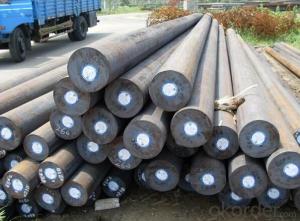Grade C35 Carbon Steel Round Bars in Stock
- Loading Port:
- Shanghai
- Payment Terms:
- TT OR LC
- Min Order Qty:
- 3 m.t.
- Supply Capability:
- 100000 m.t./month
OKorder Service Pledge
OKorder Financial Service
You Might Also Like
Item specifice
Grade C35 Carbon Steel Round Bars in Stock
Details Information of Grade C35 Carbon Steel Round Bars in Stock
| Item | carbon steel bar C35,carbon steel rod,carbon steel shaft | |
| Model No. | Q235B,Q345B,A36,SS330,SS400,SAE1045,Q195,Q215,10#,15#, 25#,30#,1010,1015,1020,1025,1030 | |
| Standard | ASTM,AISI,JIS,DIN,GB,EN | |
| Size | round | Diameter:4mm-800mm |
| Length:1-12m,or as required | ||
| flat | Width:3mm-3000mm | |
| Thickness:0.3mm-200mm | ||
| Length:1m-12m,or as required | ||
| square | Diameter:2mm*2mm-800*800mm | |
| Length:1m-12m,or as required | ||
| angle | Width:10mm*10mm-400mm*400mm | |
| Length:1m-12m,or as required | ||
| hexagonal | Diameter:4mm-800mm | |
| Length:1m-12m, | ||
| Delivery time | Prompt or according to the order quantity. | |
| Trade terms | Payment terms:T/T,L/C,western union | |
| Price terms:FOB,CFR,CIF,EXW | ||
| Package | Standard export seaworthy package, or as required. | |
| Application | Steel bar applies to petroleum,chemical industry,electric power, boiler,high temperature resistant,low temperature resistant, corrosion resistant.Carbon steel bar also can be made accroding to the customer's requirement. | |
| Contact | If you have any question,please feel free to contact me. | |
Chemical Composition of Grade C35 Carbon Steel Round Bars in Stock
| C | Si | Mn | P | S | Cr | Ni | Cu |
| 0.17-0.24 | 0.17-0.37 | 0.35-0.65 | ≤0.035 | ≤0.035 | ≤0.25 | ≤0.25 | ≤0.25 |
| Tensile strength (σb/MPa) | Yield strength (σb/MPa) | Elongation (δ5/%) |
| ≥410(42) | ≥245(25) | ≥25 |
Company Introduction of Grade C35 Carbon Steel Round Bars in Stock
CNBM International Corporation is the most import and export platform of CNBM group(China National Building Material Group Corporation) ,which is a state-owned enterprise, ranked in 270th of Fortune Global 500 in 2015.
With its advantages, CNBM International are mainly concentrate on Cement, Glass, Iron and Steel, Ceramics industries and devotes herself for supplying high quality series of refractories as well as technical consultancies and logistics solution.
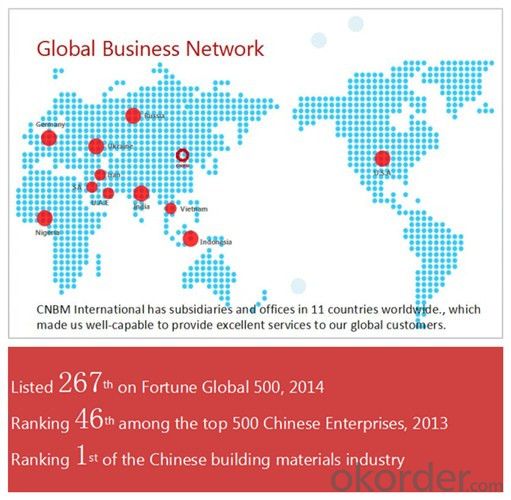
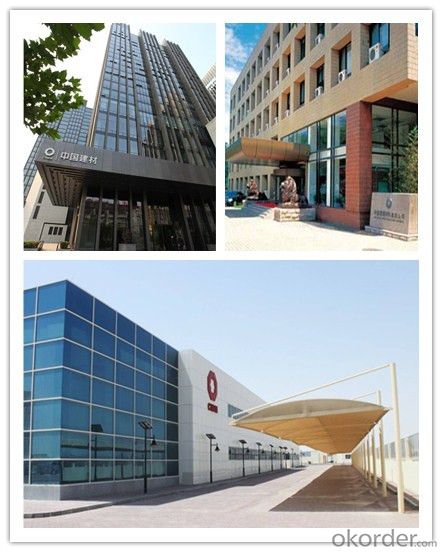
Certificates of Grade C35 Carbon Steel Round Bars in Stock
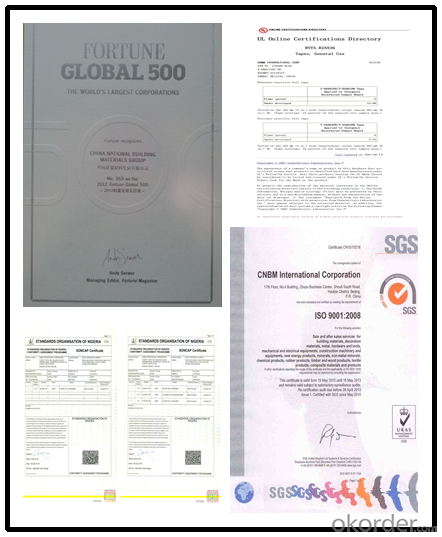
Packaging & Delivery of Grade C35 Carbon Steel Round Bars in Stock
Packaging Detail | Sea worthy packing /as per customer's packing instruction |
Delivery Detail | 15 ~ 40 days after receiving the deposit |
Products show of Grade C35 Carbon Steel Round Bars in Stock
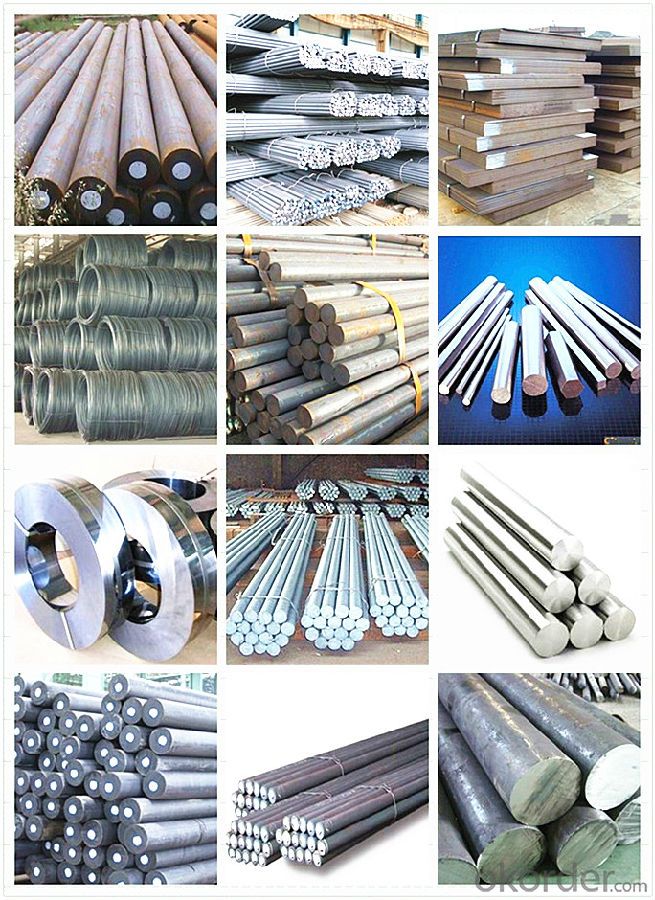
FAQ
Are you a trading company or manufacturer? | Manufacturer |
What’s the MOQ? | 3 metric ton |
What’s your delivery time? | 15-35 days after downpayment received |
Do you Accept OEM service? | Yes |
what’s your delivery terms? | FOB/CFR/CIF |
What's the Payment Terms? | 30% as deposit,70% before shipment by T/T |
Western Union acceptable for small amount. | |
L/C acceptable for large amount. | |
Scrow ,Paybal,Alipay are also ok | |
Why choose us? | Chose happens because of quality, then price, We can give you both. Additionally, we can also offer professional products inquiry, products knowledge train (for agents), smooth goods delivery, excellent customer solution proposals. |
What's your available port of Shipment? | Main Port, China |
What’s your featured services? | Our service formula: good quality+ good price+ good service=customer's trust
|
Where are your Market? | Covering more than 160 countries in the world |
- Q:Can special steel be used for electrical applications?
- Yes, special steel can be used for electrical applications. Special steels such as electrical steel or silicon steel are specifically designed for use in electrical equipment and applications. These steels have low electrical resistivity and high magnetic permeability, making them ideal for use in transformers, motors, generators, and other electrical devices that require efficient electricity conduction and magnetic properties.
- Q:How does special steel resist wear and tear?
- Special steel resists wear and tear due to its unique composition and manufacturing process. It is made with a higher percentage of alloying elements such as chromium, nickel, and molybdenum, which enhance its hardness, strength, and corrosion resistance. This increased hardness enables the steel to withstand abrasion, friction, and impact, making it highly durable and resistant to wear and tear. Additionally, special steel undergoes specialized heat treatments and mechanical processes that further enhance its toughness and resistance to deformation, contributing to its ability to withstand harsh and demanding conditions without significant deterioration.
- Q:Can special steel be used in aerospace turbine components?
- Aerospace turbine components, like blades, vanes, and disks, need strong materials to withstand tough conditions. Special steel, also known as high-performance alloy steel, fits the bill. It has excellent mechanical properties, like high strength, hardness, and temperature resistance. These qualities make it perfect for aerospace turbine components, which face extreme temperatures, pressures, and stress. Jet engines rely on turbine components to work properly, so they need materials that can handle the tough conditions. Special steel alloys, like nickel-based superalloys, are commonly used because they can maintain their strength and integrity at high temperatures. Plus, special steel is lightweight but strong, so it helps make durable yet light turbine components. This improves the efficiency and performance of aerospace systems. Special steel alloys also resist corrosion, oxidation, and fatigue, which are crucial for the long-term reliability and safety of turbine components. These materials go through rigorous testing and certification to meet aviation industry standards. In conclusion, special steel is a great choice for aerospace turbine components. Its exceptional mechanical properties and resistance to extreme conditions make it reliable and safe. It plays a vital role in ensuring the efficiency and safety of turbine systems in aerospace applications.
- Q:How does special steel contribute to the renewable energy storage?
- Special steel plays a crucial role in renewable energy storage by enabling the production of high-performance components for energy storage systems. It is used in the manufacturing of batteries, such as lithium-ion batteries, which are widely utilized in renewable energy storage applications. Special steel provides the necessary strength, durability, and resistance to corrosion, ensuring the longevity and efficiency of these batteries. Additionally, special steel is essential for the construction of renewable energy infrastructure, including wind turbines and solar panel frames, which require sturdy and reliable materials to withstand harsh environmental conditions. Therefore, special steel contributes significantly to the development and advancement of renewable energy storage solutions.
- Q:What are the different heat treatment techniques used for special steel?
- Some of the different heat treatment techniques used for special steel include annealing, tempering, quenching, and case hardening. Annealing is a process that involves heating the steel to a specific temperature and then slowly cooling it to relieve stress and improve its ductility. Tempering is done by reheating the steel to a lower temperature after quenching to reduce brittleness and increase toughness. Quenching is a rapid cooling process that involves immersing the steel in a quenching medium like oil or water to achieve high hardness. Case hardening is a technique that involves adding a hard outer layer to the steel by introducing carbon or nitrogen into its surface and then heat treating it to achieve desired properties. These techniques are used to modify the structure and properties of special steel to meet specific application requirements.
- Q:What are the heat treatment processes used for special steel?
- The heat treatment processes commonly used for special steel include annealing, tempering, quenching, and case hardening.
- Q:How is special steel produced?
- Special steel is produced through a meticulous process known as alloying, where different metals are combined with iron to enhance its properties. The alloying elements are carefully selected and added to molten iron, followed by precise temperature control and cooling to form the desired steel composition. This process ensures that special steel possesses superior strength, hardness, corrosion resistance, and other unique characteristics required for specialized applications.
- Q:What are the different heat treatment processes for special steel?
- Some of the different heat treatment processes for special steel include annealing, quenching and tempering, hardening, case hardening, and precipitation hardening.
- Q:What are the different methods of surface grinding for special steel?
- For special steel, there exist numerous techniques for surface grinding. Presented below are some of the most commonly employed methods: 1. Blanchard Grinding: To eliminate material from the steel's surface, this technique employs a grinding wheel and a rotary table. The grinding wheel, usually composed of abrasive particles bonded together in a matrix, revolves at a high speed. Blanchard grinding excels in its ability to swiftly and efficiently remove substantial amounts of material, making it ideal for roughing operations. 2. Precision Grinding: This method is frequently utilized for finishing operations that demand a high level of accuracy and surface finish. Precision grinding entails the use of a surface grinder equipped with a fine-grit grinding wheel to eliminate a small quantity of material from the steel's surface. This process is typically slower and more precise than Blanchard grinding, resulting in a smoother and more refined surface. 3. Centerless Grinding: For cylindrical steel components necessitating exceptional precision, centerless grinding is commonly employed. This technique involves feeding the steel between a grinding wheel and a regulating wheel, with the grinding wheel removing material from the surface as it rotates. The regulating wheel governs the speed and feed rate of the steel, ensuring consistent and precise grinding. 4. Creep Feed Grinding: This technique is employed for the substantial removal of stock from large steel parts. Creep feed grinding involves employing a slow feed rate and making deep cuts to eliminate material from the surface. This method is typically employed for specialized applications where traditional surface grinding methods are unsuitable due to the size or complexity of the steel part. Ultimately, the selection of a surface grinding method for special steel hinges on factors such as the desired surface finish, accuracy requirements, and the size and complexity of the steel part. Consulting with a proficient grinding professional is vital to determine the most suitable method for a specific application.
- Q:How is special steel used in the manufacturing of bearings?
- Due to its unique properties, special steel is utilized in the production of bearings, which are vital components employed in various industries. These bearings serve the purpose of reducing friction between moving parts, promoting smooth motion, and supporting heavy loads. The utilization of special steel guarantees exceptional performance and longevity. For the production of bearings, the preferred choice of special steel includes stainless steel and high-carbon chromium steel. This selection is based on the remarkable strength, hardness, and resistance to corrosion that these types of steel possess. These properties enable the bearings to endure heavy loads, withstand wear and tear, and operate effectively in challenging environments. The manufacturing process for bearings involves shaping and heat treatment. Initially, special steel is melted and cast into the desired form, typically a ring or a ball. Subsequently, the steel undergoes various heat treatment procedures like annealing, quenching, and tempering to enhance its hardness, toughness, and overall mechanical properties. This heat treatment ensures that the steel is adequately hardened to endure the stress and friction it will encounter during operation. Once the steel has undergone appropriate heat treatment, it is machined and ground to attain precise dimensions and smooth surfaces. This step is vital to ensure that the bearings possess the necessary tolerance and can rotate smoothly without any interference. Special steel's machinability and grindability simplify the achievement of the required accuracy and surface finish. Following the machining process, the bearings can be assembled with other components and lubricated to ensure proper lubrication and minimize friction. Special steel's corrosion resistance is particularly valuable at this stage as it shields the bearings from rust and degradation caused by moisture or aggressive environments. In conclusion, special steel is chosen for the production of bearings due to its exceptional strength, hardness, and corrosion resistance. These properties enable the bearings to withstand heavy loads, resist wear, and function effectively in challenging conditions. With the aid of its excellent machinability and grindability, special steel guarantees the attainment of the necessary precision and surface finish. Overall, special steel plays a pivotal role in the production of high-quality bearings that enable efficient and reliable motion in various industries.
1. Manufacturer Overview |
|
|---|---|
| Location | |
| Year Established | |
| Annual Output Value | |
| Main Markets | |
| Company Certifications | |
2. Manufacturer Certificates |
|
|---|---|
| a) Certification Name | |
| Range | |
| Reference | |
| Validity Period | |
3. Manufacturer Capability |
|
|---|---|
| a)Trade Capacity | |
| Nearest Port | |
| Export Percentage | |
| No.of Employees in Trade Department | |
| Language Spoken: | |
| b)Factory Information | |
| Factory Size: | |
| No. of Production Lines | |
| Contract Manufacturing | |
| Product Price Range | |
Send your message to us
Grade C35 Carbon Steel Round Bars in Stock
- Loading Port:
- Shanghai
- Payment Terms:
- TT OR LC
- Min Order Qty:
- 3 m.t.
- Supply Capability:
- 100000 m.t./month
OKorder Service Pledge
OKorder Financial Service
Similar products
New products
Hot products
Hot Searches
Related keywords
